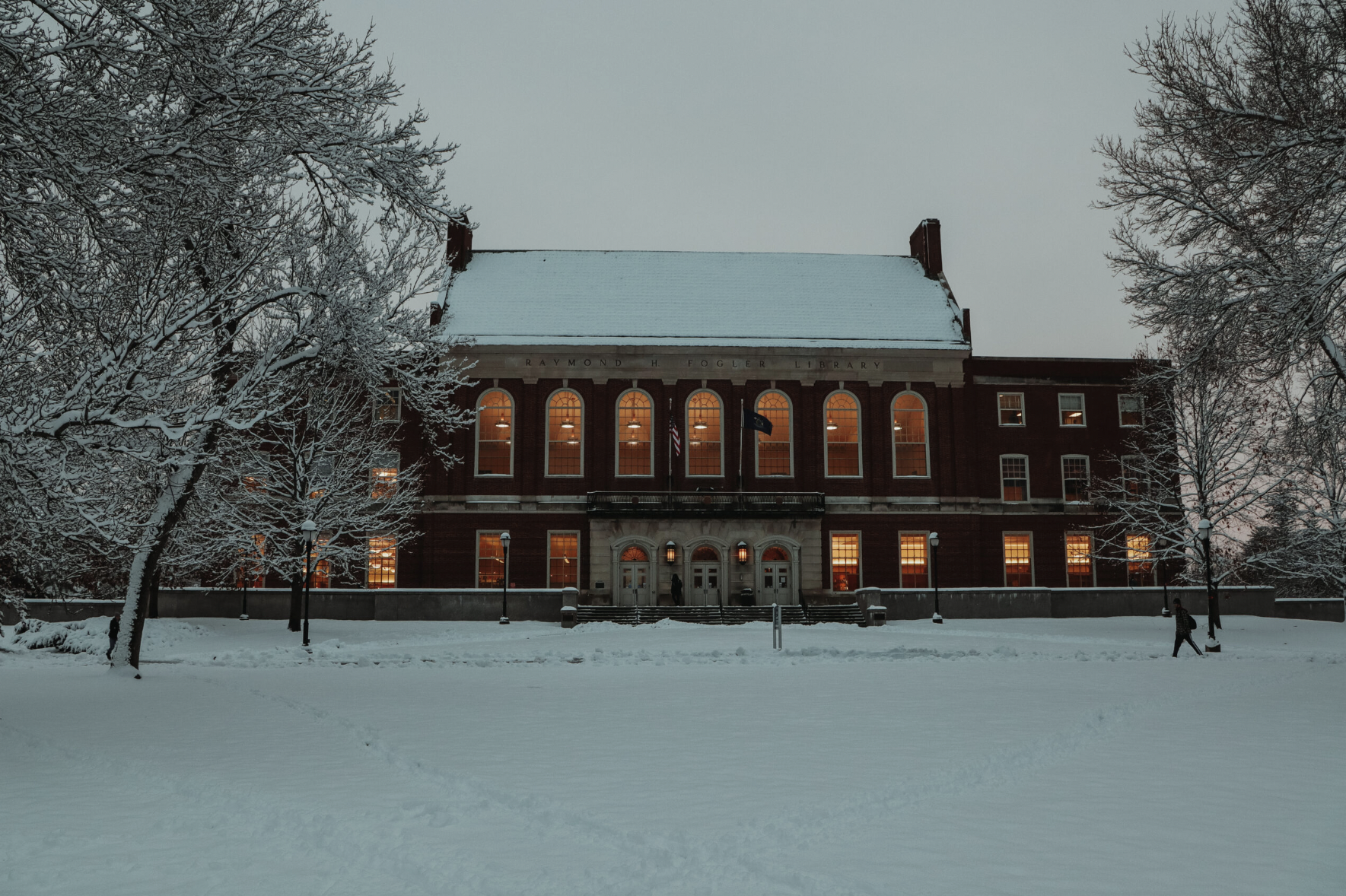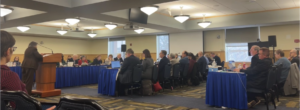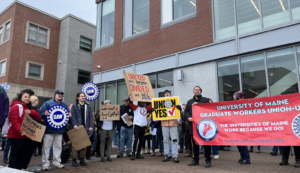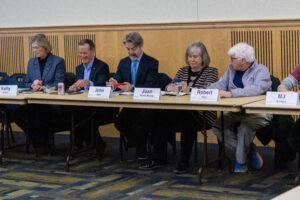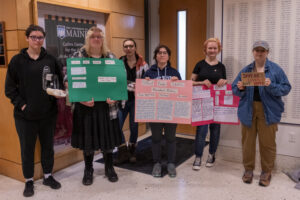The UMS Board of Trustees consists of 16 members, with 15 appointed by Governor Mills and approved by the state legislature. The Board is vested with the authority to “carry out responsibilities on behalf of the citizens of Maine,” according to the charter and state statutes.
Earlier this week, the University of Maine System Board of Trustees convened at the Wells Conference Center, hearing from student representatives and community members before consolidating abundant initiatives aligning with the 2023-2028 System Strategic Plan.
The University of Maine President, Dr. Joan Ferrini-Mundy, and the Dean of Cooperative Extension, Dr. Hannah Carter, discussed important issues in the state with the Trustees concerning youth development, heritage industries and increased access to university programs. President Mundi remarked that UMaine’s Cooperative extension “spans 108 years” and has delivered university research to rural farmers and youth to “help accelerate and improve the quality of productivity in our farming communities” since its establishment in 1862.
The Board of Trustees approved numerous funding requests, acquiring a $14 million investment for constructing a Per- and Polyfluoroalkyl Substances Research Center, a Nursing Skills Laboratory, an Aroostook Farm Phenotyping Laboratory and a Wild Blueberry Farm Laboratory. The $7 million PFAS Research Center and $3 million Wild Blueberry Hill Farm Laboratory are capital projects federally funded through Congressional Directed Spending proposals led and secured by U.S. Senator Susan Collins (R-ME), along with U.S. Senator Angus King (I-ME) in the 2023 Omnibus spending package.
UMaine’s PFAS Center aims to increase innovative research approaches to mitigate harmful chemical contamination of the agricultural economy. Maine’s wild blueberry industry will gain harvesting technologies, irrigation, and horticultural approaches from the new research infrastructure and state-of-the-art laboratory upgrades at Jonesboro Farm.
Additionally, the Board of Trustees unanimously authorized the University of Maine Augusta to sell four acres of land between I-95 and Texas Avenue to Bangor Housing Development for $160,000 to advance affordable housing in the state. Cindy Wetis, Development Director at Bangor Housing, explained the development “will be able to provide 100 units of affordable housing.”
Several students opposed the Board’s financial decision to support building a boutique hotel on Munson Rd. Meredith Waters, a third-year student, vocalized her concerns with the Board’s undertaken projects, including the construction of Hotel Ursa, costing $3 million.
“I think we’re hurting students with all of these private partnerships,” Waters said, advocating for prioritizing future significant investments for the student body. “While the University has saved money, those costs unfortunately fall to students,” Waters cited, referencing meal plan increases caused by the Sodexo dining contract.
A fifth-year student, Steven Santiago, also disapproved of these financial fallbacks on students and referred to the Hotel Ursa project as a “money-making scheme.”
“I would challenge you in the years to come to pay attention to what your students are saying and to center their narrative in your work,” said Santiago. The Board of Trustees controversially approved an additional $500,000 for converting two historical buildings on campus into Hotel Ursa.
Addressing the state of residence halls, Darren Martone, a transfer student from Maryland, emphasized that Estabrooke “should be a template” for future halls. Shocked that Estabrooke will soon be transformed into a UMaine office, Martone declared, “This seems short-sighted…it just doesn’t seem right.”
Vice Chancellor for Research and Innovation, Dr. Ferrini-Mundy, along with UMS faculty and students, presented an update on Research Learning Experiences, which are introductory courses in various disciplines offered to beginning college students. These courses “serve as an engine for innovation for Maine businesses, non-profits, state and local governments, communities, and the K-12 schools,” as outlined in the System Strategic Plan.
By helping “students get engaged in the first semester, RLE constructs special experiences that enable them to conduct research and bring a creative mindset and authentic problem solving before classes even begin,” briefed President Ferrini-Mundy, summarizing the $10 million award benefits.
“It allows students to think for themselves,” recollected Business student Lucas Ronco, describing Professor Buffie McCue-Quinn’s Business of Healthcare and Blueberries RLE course. The RLE experience was “very beneficial to building skills that you might not build in lecture halls,” Ronco elaborated, referring to his presentation of three recommendations to the CEO of Wyman’s Blueberry business.
Dr. Tracy Michaud, an Associate Professor and Chair of Tourism and Hospitality at USM, shared that her students’ immersive learning opportunities in sustainable tourism development expanded community engagement, especially for commuter students.
“Students have more ownership and realize they truly are scientists from the time that they’re starting,” said Professor of Chemistry at UMaine Machias, William Otto, describing the success of their bridge program that allows students to gain hands-on experience in measuring ocean data.
